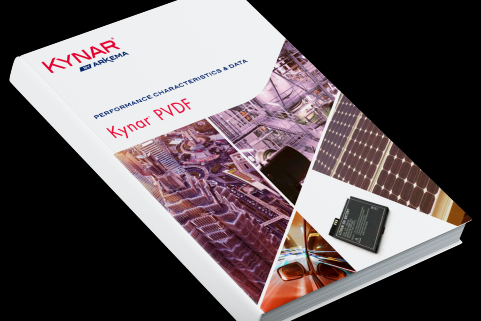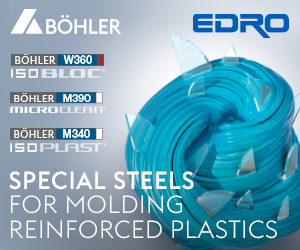Materials: High Viscosity PVDF for Extrusion
Arkema has commercialized the highly flexible, high viscosity Kynar Flex 3030-50 PVDF for extrusion processing
A highly flexible, high viscosity PVDF resin designed for extrusion processing that is reportedly suited for many applications including wire and cable, fuel lines and industrial hoses has been commercialized by Arkema, King of Prussia, Penn.
Kynar Flex 3030-50 PVDF is a tough, highly flexible polymer suitable for applications requiring low temperature impact resistance as well as high temperature performance. Kynar Flex 3030-10 resin, the low viscosity version of this material, has been used extensively in high-speed wire and cable extrusion, tube extrusion and injection molding applications. With a higher molecular weight, the new Kynar Flex 3030-50 resin opens up new markets and applications for the Kynar PVDF family.

Kynar Flex 3030-50 resin has been shown to maintain the same properties as other Kynar PVDF resins including high flexibility, good smoke and flame resistance, UV stability and excellent chemical resistance. While its low viscosity counterparts offer low temperature cold bend performance down to -40 C/-40 F, Kynar Flex 3030-50 PVDF maintains this cold bend performance at an even lower temperature of -60 C/-60 F. Cold temperature impact performance is also improved in the Kynar Flex 3030-50 resin. Additionally, the higher molecular weight of the material allows for more efficient cross-linking, which can raise the continuous use temperature from 150 C/302 F up to 175 C/347 F. Applications for Kynar Flex 3030-50 PVDF include cross-linked automotive cable, downhole cable, automotive fuel lines and industrial hoses.
Related Content
-
Understanding the ‘Science’ of Color
And as with all sciences, there are fundamentals that must be considered to do color right. Here’s a helpful start.
-
Melt Flow Rate Testing–Part 1
Though often criticized, MFR is a very good gauge of the relative average molecular weight of the polymer. Since molecular weight (MW) is the driving force behind performance in polymers, it turns out to be a very useful number.
-
Understanding Strain-Rate Sensitivity In Polymers
Material behavior is fundamentally determined by the equivalence of time and temperature. But that principle tends to be lost on processors and designers. Here’s some guidance.











